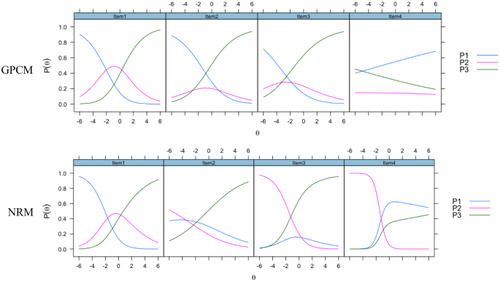利用名义反应模型探讨韩国学习策略与数学成绩之间的线性和非线性关系:2012 年国际学生评估项目(PISA)。
Q1 Engineering
引用次数: 0
摘要
学习策略被认为是预测数学成绩的重要因素。最近的研究发现,亚洲学生使用综合学习策略,主要包括元认知策略,而不是死记硬背。据作者所知,在 2012 年国际学生评估项目(PISA)中,只有一项先前的研究将韩国纳入了学习策略与数学成绩之间关系的调查中。在该研究中,学生被分为使用特定学习策略的小组,并对他们的数学成绩进行了比较。目前存在两个研究空白:(1) 以往的研究对韩国教育系统中学生如何使用学习策略的探讨不够充分;(2) 很少有研究采用名义反应模型(NRM)来探讨 PISA 2012 中学习策略的使用与数学成绩之间的关系。因此,与广义部分学分模型(GPCM)相比,本研究探讨了 NRM 与数据的拟合程度。我们根据 NRM 为参加 PISA 2012 的韩国学生(N = 3,310 人)创建了学习策略得分。然后,通过相关分析和二次回归分析,我们确定了 NRM 学习策略得分与数学成绩之间的线性和非线性关系。研究结果表明:(1) NRM 比 GPCM 更适合创建学习策略分数;(2) 学习策略分数与数学成绩之间的平均相关系数为 0.18 (p < .05);(3) 对于学习策略分数与数学成绩之间的曲线关系,标准化二次系数为 - 0.090 (p < .001)。总体而言,NRM 是解释学习策略与数学成绩之间关系的合适模型。此外,成绩优秀的韩国学生倾向于主要使用元认知策略进行记忆。负二次方系数反映了主要使用元认知策略与记忆的有限影响。本文讨论了这一研究对韩国教育体系的影响。本文章由计算机程序翻译,如有差异,请以英文原文为准。

Exploration of the linear and nonlinear relationships between learning strategies and mathematics achievement in South Korea using the nominal response model : PISA 2012
Learning strategies have been recognized as important predictors of mathematical achievement. In recent studies, it has been found that Asian students use combined learning strategies, primarily including metacognitive strategies, rather than rote memorization. To the best of the authors’ knowledge, there is only one prior study including South Korea in investigations of the relationship between learning strategies and mathematics achievement in PISA 2012. In that study, students were classified into groups using specific learning strategies, and their mathematics achievements were compared. There are two research gaps: (1) previous studies insufficiently explored how students use learning strategies in the South Korean education system, and (2) there is little research applying the nominal response model (NRM) to explore the association between learning strategy use and mathematics achievement in PISA 2012. Thus, the present study explores to what extent the NRM fits the data compared to the generalized partial credit model (GPCM). We created a learning strategy score from the NRM for South Korean students in PISA 2012 (N = 3,310). Then, using correlation analysis and quadratic regression analysis, we identified linear and nonlinear relations between learning strategy scores from the NRM and mathematics achievement. The findings indicated that (1) NRM was a better fit for creating learning strategy scores than GPCM, (2) the average correlation coefficient between the learning strategy score and mathematics achievement was 0.18 (p < .05), and (3) for the curvilinear relationship between the learning strategy score and mathematics achievement, the standardized quadratic coefficient was − 0.090 (p < .001). Overall, the NRM represents an appropriate model for explaining the relationship between learning strategy and mathematical achievement. Additionally, high-performing South Korean students tend to primarily use metacognitive strategies with memorization. The negative quadratic coefficient captured the limited effect of the primary use of metacognitive strategies with memorization. The implications for the South Korean education system are discussed.
求助全文
通过发布文献求助,成功后即可免费获取论文全文。
去求助
来源期刊

Visualization in Engineering
Engineering-Engineering (miscellaneous)
CiteScore
8.60
自引率
0.00%
发文量
0
期刊介绍:
Visualization in Engineering publishes original research results regarding visualization paradigms, models, technologies, and applications that contribute significantly to the advancement of engineering in all branches, including medical, biological, civil, architectural, mechanical, manufacturing, industrial, aerospace, and meteorological engineering and beyond. The journal solicits research papers with particular emphasis on essential research problems, innovative solutions, and rigorous validations.
 求助内容:
求助内容: 应助结果提醒方式:
应助结果提醒方式:


